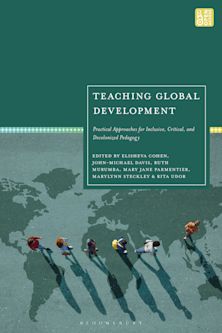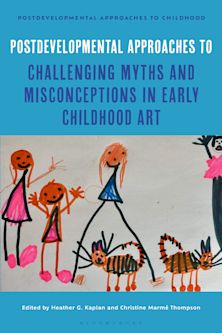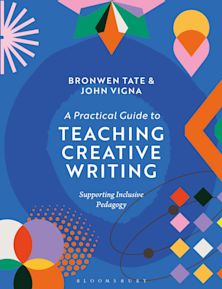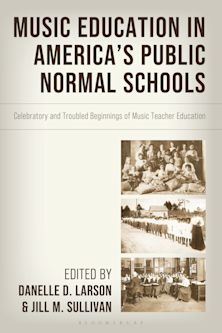- Home
- ACADEMIC
- Education
- Teaching Specific Subjects
- Digital Citizenship
This product is usually dispatched within 1 week
- Delivery and returns info
-
Free US delivery on orders $35 or over
You must sign in to add this item to your wishlist. Please sign in or create an account
Description
Being a good digital citizen means to be an ethical and responsible member of the online community. Digital citizenship is the practice and teaching to help individuals, particularly young people, know how to navigate, create, communicate and protect themselves online. As more and more technology is used in personal lives and schools, the need for digital citizenship grows.
Digital Citizenship: Research and Practice from the Field provides research-based strategies that can help any educator working with technology and youth. Through experience and data collected by teaching in-depth digital citizenship classes with K-12 students, special populations and educator trainings, this book can provide real-life advice on what works, and what doesn't.
The models and advice in this title are based on prevention science. Prevention Science is the application of scientific method to prevent dysfunctional human behavior before it even starts.
In addition, this book will give its readers worksheets, activity sheets, lesson plans and assessment tools for implementing digital citizenship instruction in their organization.
Digital citizenship is a growing, multi-faceted, interdisciplinary subject in need of research and practical and applicable advice. This book brings together past studies, independent research and knowledge from other disciplines to provide solutions.
Table of Contents
Acknowledgements
Chapter 1- Current State of Digital Citizenship
Chapter 2- Human Behavior is the Core of Digital Citizenship
Chapter 3- Assessing Digital Citizenship Knowledge
Chapter 4- Teaching Models for Digital Citizenship
Chapter 5- Technology Trends
Chapter 6- Teaching Digital Citizenship: Digital Communication and Media Literacy
Chapter 7- Teaching Digital Citizenship: Digital Safety and Security
Chapter 8- Teaching Digital Citizenship: Digital Health and Wellness
Chapter 9- Teaching Digital Citizenship: Digital Commerce, Digital Rights and Responsibilities and Online Privacy
Chapter 10- Making Digital Citizenship Inclusive
Conclusion
References
Appendix A: Digital Citizenship Gap Analysis
Appendix B: Robot Maze Activity
Appendix C: Are you in a Bubble?
Appendix D: Types of Nos
Appendix E: Your Game Plan Worksheet
Appendix F: Creating a Safe Password Worksheet
Appendix G: Emoji Life Story & Digital Citizenship Coloring Page
About the Author
Product details
| Published | Jul 23 2019 |
|---|---|
| Format | Hardback |
| Edition | 1st |
| Extent | 178 |
| ISBN | 9781475848250 |
| Imprint | Rowman & Littlefield |
| Illustrations | 4 b/w illustrations; 19 b/w photos; 9 tables; 15 textboxes |
| Dimensions | 9 x 6 inches |
| Publisher | Bloomsbury Publishing |
About the contributors
Reviews
-
Digital citizenship is a dynamic and multidisciplinary field. Early works on this topic have concentrated on political and economic impacts, emphasizing the fact that becoming a digital citizen is essential for adults as citizens and in the workplace. Works on digital citizenship for educators, meanwhile, have often focused on cyber bullying, security, fear, and safety issues. Digital Citizenship goes beyond those basics to delineate how educators can help students embrace the positive side of digital literacy and citizenship to teach them about sharing and how to use technology creatively. This work offers an overview of digital citizenship past and present, along with teaching tips related to technology trends, digital communication, media literacy, safety, security, health, law, digital rights, and digital equity. With K-12 educators as its intended audience, the book includes lesson plans, photos, and illustrations throughout, and classroom activities are included in the appendixes. Readers can delve deeper into the subject matter by following up with the extensive reference list at the end of the book.
Summing Up: Recommended. All readership levels.Choice Reviews
-
With the pivotal roles technology and the Internet have come to play in education and in our lives, helping young people learn to navigate the online world and establish positive digital identities continues to become increasingly important. In her book, Digital Citizenship: Teaching Strategies and Practice from the Field, Carrie Rogers-Whitehead provides a comprehensive look at the need for digital citizenship education and offers many practical and sound ideas for teaching digital citizenship. The wealth of knowledge she has gained from her work with teaching digital citizenship skills, both as a librarian and digcit advocate, is shared in this wonderful reference.
Jenny Peirce, Educational Technology Specialist, Granite School District
-
In our continually-expanding digital environment, the need for digital citizenship education has never been greater. As educators, technology specialists, school librarians, and other influencers of students collaborate and share ideas and best practices, they can be better prepared to help students navigate their complex world. Carrie Rogers-Whitehead combines her years of experience as a librarian as well as her passion for digital citizenship education, providing provide a research-rich book that can be very helpful for such influencers.
Michelle Linford, Executive Director, EPIK: Deliberate Digital



































